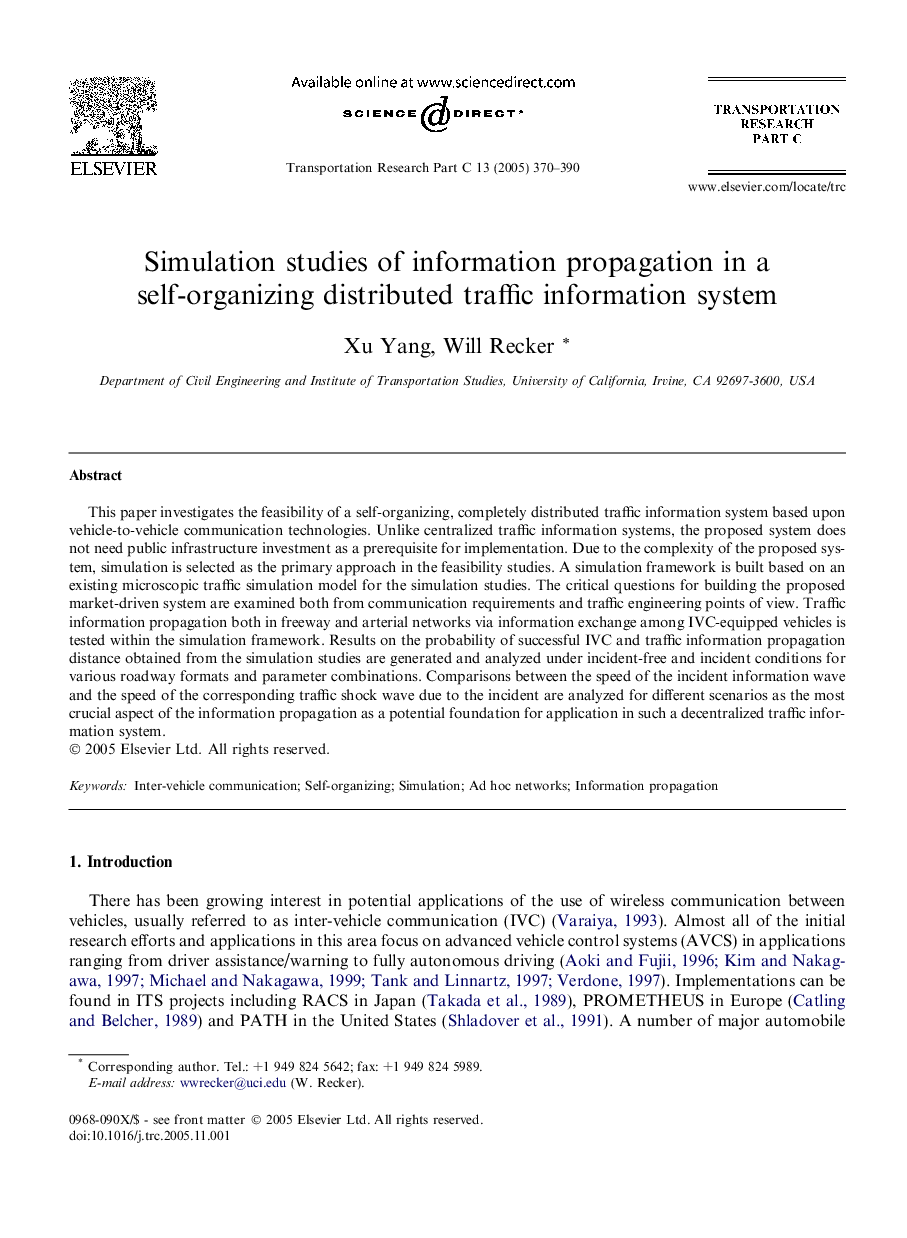| Article ID | Journal | Published Year | Pages | File Type |
|---|---|---|---|---|
| 9669507 | Transportation Research Part C: Emerging Technologies | 2005 | 21 Pages |
Abstract
This paper investigates the feasibility of a self-organizing, completely distributed traffic information system based upon vehicle-to-vehicle communication technologies. Unlike centralized traffic information systems, the proposed system does not need public infrastructure investment as a prerequisite for implementation. Due to the complexity of the proposed system, simulation is selected as the primary approach in the feasibility studies. A simulation framework is built based on an existing microscopic traffic simulation model for the simulation studies. The critical questions for building the proposed market-driven system are examined both from communication requirements and traffic engineering points of view. Traffic information propagation both in freeway and arterial networks via information exchange among IVC-equipped vehicles is tested within the simulation framework. Results on the probability of successful IVC and traffic information propagation distance obtained from the simulation studies are generated and analyzed under incident-free and incident conditions for various roadway formats and parameter combinations. Comparisons between the speed of the incident information wave and the speed of the corresponding traffic shock wave due to the incident are analyzed for different scenarios as the most crucial aspect of the information propagation as a potential foundation for application in such a decentralized traffic information system.
Related Topics
Physical Sciences and Engineering
Computer Science
Computer Science Applications
Authors
Xu Yang, Will Recker,
